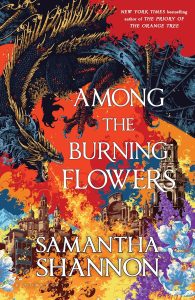
Rachel Joyce, best known for The Unlikely Pilgrimage of Harold Fry, returns with another deeply reflective and emotionally layered novel. The Homemade God is a slow-burning exploration of family, legacy, and the ghosts that linger long after a parent’s death. Set against the sun-drenched beauty of Italy’s Lake Orta, the story captures the ache and chaos of four siblings forced to confront not only their father’s mysterious death but also the scars he left behind.
When world-famous artist Vic Kemp dies just six weeks after marrying his much-younger wife Bella-Mae, his four children Netta, Susan, Goose, and Iris travel to Italy to sort out his affairs. They arrive to find a house full of secrets: a missing will, an unfinished masterpiece, and a widow they barely know. As the siblings wait for answers, old rivalries and resentments surface, forcing them to face the uncomfortable truths of their upbringing and their father’s complicated legacy.
Rachel Joyce weaves the story with her signature blend of wit, empathy, and sharp observation. Each sibling is drawn with striking depth: Netta, the responsible lawyer trying to keep the peace; Susan, the caretaker trapped in routine; Goose, the failed artist living in his father’s shadow; and Iris, the fragile youngest who can’t let go of the past. Their interactions are messy, tender, and painfully real, echoing the complex web of love and resentment that defines so many families.
Shelley from The Book Review Crew Blog described the novel as “a very slow-burn, character-driven story,” praising its atmosphere and emotional insight but admitting frustration with its pacing and the difficult, often unlikable patriarch. Her reflections mirror what many readers might feel: Vic is magnetic yet monstrous, a man whose genius cannot excuse his cruelty. Joyce paints him with brutal honesty a father who left behind more wounds than art.
Meanwhile, reviewer Nilufer Ozmekik called The Homemade God “emotionally rich and atmospheric,” admiring Joyce’s ability to blend mystery with psychological realism. She highlighted the novel’s exquisite prose and layered symbolism, noting how it delves into themes of grief, identity, and the inheritance of trauma. Stephen the Bookworm similarly emphasized the story’s nuance, describing it as “a family in meltdown, full of unsaid thoughts and illusions.” What begins as a potential murder mystery slowly transforms into something more profound a portrait of reconciliation, loss, and the human need for love despite disappointment.
What makes The Homemade God particularly moving is its restraint. Joyce doesn’t rush her revelations. Instead, she allows emotions to simmer beneath the surface until they finally burst. The tension between the siblings feels lived-in, and the Italian setting provides both warmth and isolation, amplifying their search for meaning amid grief.
For some readers, the pacing may feel deliberate, even slow, but that rhythm serves the story’s introspective nature. Joyce invites us to linger to feel the discomfort of silence, the weight of memory, and the small mercies of forgiveness.
The Homemade God is not just about a family reckoning with death; it’s about the art of rebuilding oneself when the foundation of love has cracked. Rachel Joyce once again proves she is a master at finding beauty in brokenness and hope in the mess of human relationships.
If you love family dramas rich with emotion, introspection, and a touch of mystery, this novel deserves a place on your reading list.


